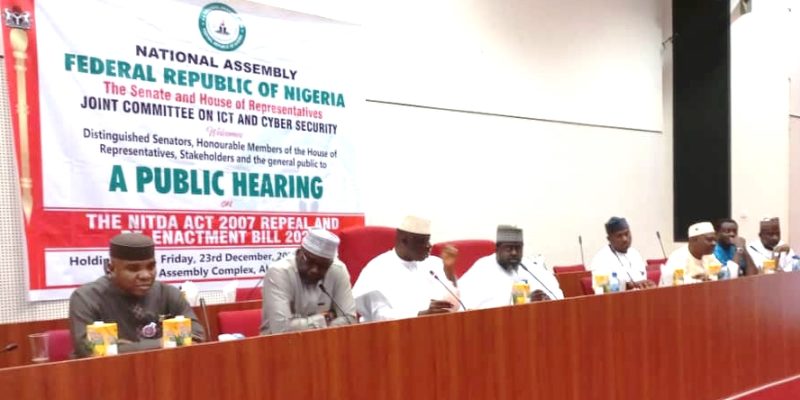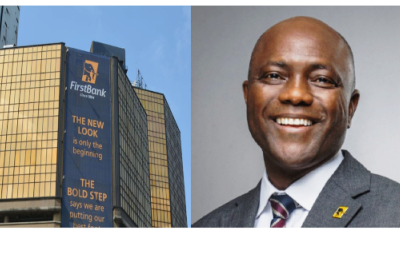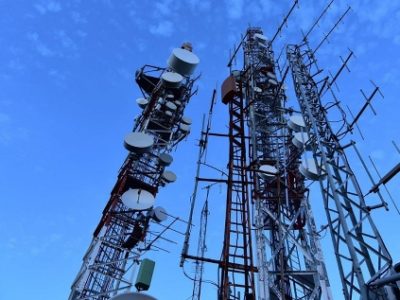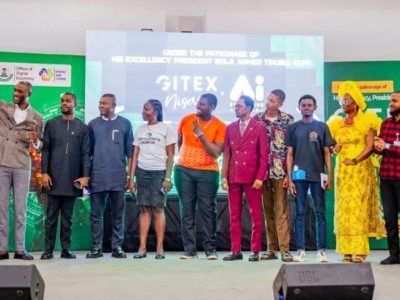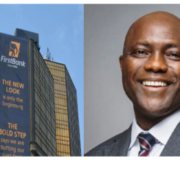The move to create a new law under which the National Information Technology Development Agency (NITDA) will operate appears to have run into troubled waters.
A public hearing organised by the National Assembly Joint Committee on Information Communications Technology on a Bill for an Act to Repeal the National Information Technology Development Agency Act No. 28, 2007 and Enact the National Information Technology Development Agency Act, ended up in chaos.
Failing to form a quorum, the Joint Committee subsequently adjourned the public hearing to sometime in the middle of January 2023.
House member raised a point of order
A member of the House Committee, Hon Nkem Uzoma-Abonta (representing Ukwa East/West Federal Constituency of Abia State), raised a point of order. He argued that the public hearing appeared secretive and should be postponed to January setting the tone for the plenary chaos that would follow.
Further still, the absence of key stakeholders to help drive discussions around the bill heightened the controversies over the validity of the public hearing. The Minister of Communication and Digital Economy, Prof. Isa Ali Ibrahim Pantami was absent. So too were the Executive Vice Chairman and Chief Executive Officer of the Nigerian Communications, Commission (NCC), Professor Umar Garba Danbatta, and the Director General of the NITDA, Kashifu Inuwa Abdullahi whose agency is driving the process.
According to Abonta, only few members of the House Committee on ICT and Cyber Security were in attendance and also expressed worries that the House members present did not have a copy of the bill even as he raised concerns that both the M Minister for Communications and Digital Economy, Prof Pantami and the Director General of NITDA, Abdullahi were absent.
His words: “This is a bill that will protect the integrity of Nigeria in the Internet space. But the drivers of the bill seem to be running on low gear. When the Senate President ably represented here spoke, he talked about people rumouring that we are holding a secret hearing. No, here there is nothing secretive about this, we are here in this hall.
“However, the needed ingredients for us to proceed are not available. I am speaking from the side of the House. We have conferred among ourselves. We have 36 members of the committee and how many of us are here?
“Critically too, we don’t have the required documents here. I can’t find the Director-General of NITDA, the minister is not here. What needs to done should be seen to be properly done”.
His position was immediately supported by, Hon. Idem Unyime (representing Ukanafun/Oruk Anam Federal Constituency of Akwa-Ibom State). Unyime said he had no copy of the bill which needed to be properly scrutinised by lawmakers considering its importance.
Unyime argued that the minister and the CEO of NITDA must be physically present to defend the bill as it is being spearheaded by their ministry and agency respectively.
Bill would administer, implement and regulate digital economy
Earlier, the public hearing had been declared open by President of the Senate, Ahmad Lawan, who was represented by the Deputy Whip, Senator Aliu Sabi Abdullahi. This was followed by a welcome address by the chairman, Senate Committee on ICT and Cyber Security, Senator Yakubu Oseni and his House counterpart, Hon. Lado Abubakar Suleja.
According to Senator Oseni, the bill would help “provide for the administration, implementation and regulation of information technology systems and practices as well as digital economy in Nigeria and for related matters.”
In attendance were a sizeable number of stakeholders from ministries, departments and agencies (MDAs) of the federal and state governments, the business community and civil society organisations (CSOs) among others. But Abonte and other House members expressed concerns that heads of major MDAs in the sector were absent, which could further fuel the controversies around the bill.
Part of the controversies is that bill intends to make NITDA a super regulator enabling it to annex mandates of other existing agencies in a way that could undermine the entire goals of Nigeria’s digital economy.
The Bill had earlier been considered by the House of Representatives and consecutively passed the first and second readings on the floor of The Senate on December 12 and 13 respectively.
The public hearing held December 23 but in chaos as the members of the Joint Committee from the House of Representatives objected to the continuation of the public hearing against the desire of the members from the Senate.


